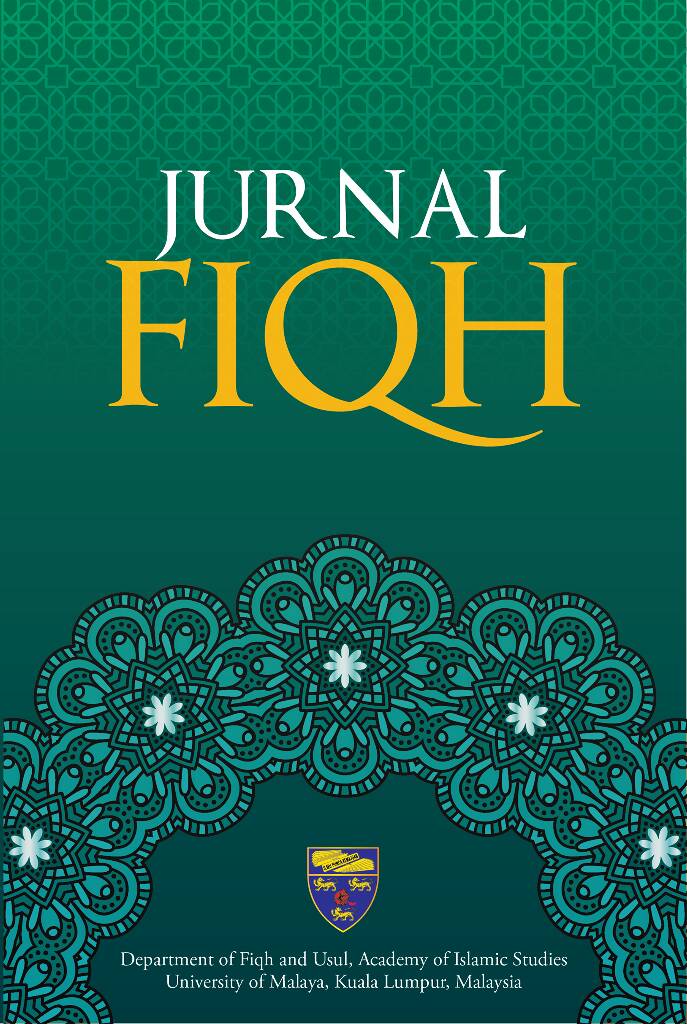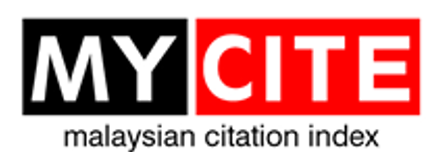SEWAGE WATER TREATMENT AND ITS EFFECT ON THE CLEANLINESS OF WATER: A REVIEW FROM ISLAMIC AND SCIENCE PERSPECTIVE
DOI:
https://doi.org/10.22452/fiqh.vol21no1.4Keywords:
Mutanajjis, sewage water treatment, ṭahārah (purification), MalaysiaAbstract
Due to the water combining with feces, sewage water found in the Sewage Treatment Plant (STP) is classified as mutanajjis. However, the wastewater cleaned with current technology in STP has created concerns, particularly among Muslims, over whether it can be classified as muṭlaq water or not. The purpose of this study is to compare the cleaning mechanism from an Islamic perspective with the sewage water treatment technique in Indah Water Konsortium (IWK) Malaysia. Next, to examine the treated sewage water and its impact on the law of ṭahārah in Islam. This study uses a qualitative approach using data collection techniques by document analysis, observations at the Regional Sewage Water Treatment Plant (RSTP) KL-Titiwangsa 2 owned by Indah Water Konsortium (IWK) Malaysia, interviews with Shariah and water experts, and laboratory analysis. The results of the study revealed that the wastewater treatment technology at RSTP Serantau KL-Titiwangsa 2 can change the status of water from mutanajjis to muṭlaq because it meets all the criteria for muṭlaq water set by the fuqaha. Through the results of laboratory analysis, the treated sewage water is categorized in the same category as muṭlaq water. Therefore, the water can be used for ṭahārah purposes. It also sheds light on the aspects of environmental sustainability from an Islamic perspective.
Downloads
References
Akademi Sains Malaysia. “Study on the Current Issues and Needs for Water Supply and Wastewater Management in Malaysia”. Academy of Sciences Malaysia. 2015. https:// www.akademisains.gov.my/asm-publication/wswm_volume_2/.
Al-Dibyan, Dibyan bin Muhammad. Mausū‘ah Aḥkām Al- Ṭahārah. Riyadh: Maktabah al-Rusyd, 2005.
Al-Hattab, Muhammad bin Muhammad bin Abdul Rahman al- Ru’aini. Mawāhib al-Jalil fi Sharh Mukhtasar al-Khalil. Beirut: Dar al-Fikr, 1992.
Al-Hishni, Taqiyuddin Abu Bakr. Kifayah al-Akhyar fi Halli Ghayah al-Ikhtisar. Beirut: Dar al-Kutub al- Ilmiyyah, 2001.
Al-Khin, Mustafa, Al-Bugha, Mustafa & Al-Syarbaji, Ali. Al-Fiqh al-Manhaji ala Mazhab al-Imam al-Syafi’i. Dimashq: Dar al-Qalam, 2007.
Al-Marghinani, Ali bin Abi Bakr. al-Hidāyah fi Syarh Bidāyat al- Mubtadi. Beirut: Dar Ihyā’ al-Turath al-Arabiy, 1985.
Al-Nawawi, Yahya bin Syaraf. al-Majmū‘ Syarh al-Muhazzab. Beirut: Dar al-Fikr, n.d.
Darul Iftā’ al-Misriyyah. “Hukm al-Ṭahārah bi Miyāh al-Sarfi al- Muā’lajah”. Last modified Mei 13, 2018. http://dar-alifta.
org/home/viewfatwa?ID=14414.
Ibn Qudamah, Abdullah bin Muhammad. Al-Mughni. Riyadh: Dar ‘Alam al-Kutub, 1997.
Ibn Taimiyyah, Ahmad bin Abdel Halim. Majmū‘ al-Fatāwa. Madinah: Majma‘ al-Malik Fahd, 1995.
Indah Water Konsortium [IWK]. “Regional Sewage Treatment Plant (RSTP) KL-Titiwangsa 1-KLR403, IWK Report”. Kuala Lumpur: IWK Sdn Bhd, 2020.
Jabatan Kemajuan Islam Malaysia [JAKIM]. “Hukum Penggunaan Air Baru (Newater)”. Kompilasi Pandangan Hukum
Muzakarah Jawatankuasa Fatwa Majlis Kebangsaan Hal Ehwal Ugama Islam Malaysia. Shah Alam: Crystal Creative
Empire, 2015.
Jabatan Kemajuan Islam Malaysia [JAKIM]. “Penggunaan Semula Bioefluen Terawat Dan Biopepejal Dari Loji Rawatan Kumbahan (LRK) IWK”. JAKIM, 2017. http://e- smaf.islam.gov.my/e-smaf/index.php/main/mainv1/fatwa/ pr/15524
Majelis Ulama Indonesia. “Air Daur Ulang”. Last modified January 27, 2010. https://halalmui.org/wp-content/ uploads/2023/06/Fatwa-Air-Daur-Ulang.pdf
Majlis Ugama Islam Singapura. “Fatwa Penggunaan Air Yang Di Kitar Semula – Newater”. Nombor fatwa: FAT00001- 2003. Accessed date Jun 20, 2021. http://www.muis.gov.sg/ rservices/index2.asp.
Mariyappan, Raman. “Level of Sustainable Green Practices at Pantai 2 Sewage Treatment Plant, Klang Valley, Malaysia.” European Journal of Sustainable Development 8, no. 5 (2019), 337-337.
Ministry of Health. “Ebola: Information for the public”. Kuala Lumpur: MOH, 2014. http://www.health.govt.nz/your- health/conditions-and-treatments/diseases-and-illnesses/
ebolainformation-public
Mokhtar, Mohd Istajib, and Raihanah Abdullah. “Undang-Undang Air Islam: Analisis Komparatif Terhadap Aspek Kualiti Air: Islamic Law of Water: Comparative Analysis of The Quality Aspects of Water.” Jurnal Syariah 20, no. 2 (2012), 185-218.
Mokhtar, Mohd Istajib, Raihanah Abdullah, and Azizan Baharuddin. “An Islamic perspective on water quality: a case of Malaysia.” Water Policy 17, no. 3 (2015), 454-471.
Muassasah Durar Sunniyyah. “Al-Ma’ al-Mukhtalith bi Najasah”. Mausū‘ah Fiqhiyyah. Muassasah Durar Sunniyyah, 2 April
https://www.dorar.net/feqhia/13
Roslan, Siti Noorain, Siti Salmi Ghazali, and Norfadhlina Muhamed Asli. “Study on the characteristics and utilization of sewage sludge at Indah Water Konsortium (IWK) Sungai Udang, Melaka.” International Journal of Environmental and Ecological Engineering 7, no. 8 (2013), 544-548.
Salleh, Mohd Mahyeddin Mohd, Nurdeng Deuraseh, Irwan Mohd Subri, Suhaimi Ab Rahman, Shuhaimi Mustafa, Mohammad
AizatJamaludin, and Yasmin Hanani Mohd Safian. “The Use Of Ceramic Product Derived From Non-Halal Animal Bone: Is It Permissible From The Perspective Of Islamic Law?.” International Journal of Asian Social Science 7, no. 3 (2017), 192-198.
Salleh, Mohd Mahyeddin Mohd, Yasmin Hanani Mohd Safian, Hussein‘Azeemi Abdullah Thaidi, Syaza Azhari, and Khadijah Amira Abdul Rashid. “Analisis Fatwa Air Sisa Kumbahan Dari Sumber Mutanajjis: Fatwa Analysis of Waste Water from Mutanajjis Sources.” INSLA E-Proceedings 3, no. 1 (2020), 525-534.
Salleh, Mohd Mahyeddin Mohd, Yasmin Hanani Mohd Safian, Hussein‘Azeemi Abdullah Thaidi, Syaza Azhari, and Khadijah Amira Abdul Rashid. “Analisis Fatwa Air Sisa Kumbahan Dari Sumber Mutanajjis.” Journal of Fatwa Management and Research 25, no.1 (2021), 77-92.
Salleh, Mohd Mahyeddin Mohd, Yasmin Hanani Mohd Safian, Syaza Azhari, and Hussein Azemi Abdullah Thaidi. “Penggunaan Semula Air Kumbahan Mutanajjis Untuk Tujuan Taharah: Satu Analisa Fiqah dan Kajian Sains Berdasarkan Amalan Rawatan Kumbahan oleh Indah Water Konsortium (IWK).” Ulum Islamiyyah: The Malaysian Journal of Islamic Sciences 35, no. 1 (2023), 19-36.
Salleh, Mohd Mahyeddin Mohd, Yasmin Hanani Mohd Safian, Syaza Azhari, Hussein Azemi Abdullah Thaidi, and
Muhammad Abdul Rahman Sevanathan. “Mekanisma Pembersihan Air Mutanajjis Menurut Fiqah Dan Aplikasinya Dalam Rawatan Air Kumbahan Oleh Indah Water Konsortium: Ke Arah Mencapai Kelestarian Sumber Air.” E-Prosiding Seminar Antarabangsa Islam Dan Sains.Nilai: Penerbit USIM. 2021.
Scanlon, John, Angela Cassar, and Noémi Nemes. Water as a human right?. No. 51. United Kingdom: International Union for Conservation of Nature (IUCN) Publications Services Unit, 2004. https://books.google.com.my/













